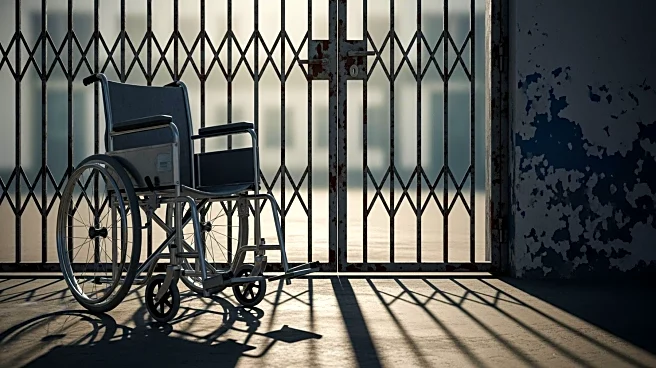What's Happening?
Israeli authorities are preparing to deport at least 89 Palestinian patients and their companions from Jerusalem back to Gaza. These individuals were evacuated for medical treatment before the onset of
the war in Gaza two years ago. The World Health Organization (WHO) reports that 94% of hospitals in Gaza have been damaged or destroyed, creating a dire situation for returning patients. Despite the risks, most patients have agreed to return, although some are being sent against their will. The Israeli military has requested the WHO to facilitate the transfer of these patients early next week.
Why It's Important?
The deportation of Palestinian patients from Jerusalem back to Gaza highlights the ongoing humanitarian crisis in the region. With the majority of Gaza's hospitals damaged, the return of these patients poses significant health risks. This situation underscores the broader challenges faced by Gaza's healthcare system, which is struggling to provide adequate care amidst infrastructure destruction. The deportation also raises ethical concerns regarding the forced return of individuals to a region with insufficient medical facilities, potentially exacerbating their health conditions.
What's Next?
The WHO's involvement in facilitating the transfer suggests international attention and potential advocacy for the patients' welfare. The deportation may prompt reactions from human rights organizations and international bodies concerned with the humanitarian implications. Additionally, the situation could lead to increased diplomatic tensions between Israel and Palestinian authorities, as well as calls for more robust international intervention to address the healthcare crisis in Gaza.
Beyond the Headlines
The forced return of patients to Gaza may have long-term implications for regional stability and international relations. It highlights the complex interplay between healthcare, human rights, and geopolitical dynamics in conflict zones. The situation may also influence future policies regarding the treatment and movement of displaced individuals in conflict areas, potentially prompting discussions on international healthcare support and humanitarian aid strategies.









